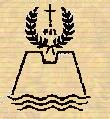|
END
TIMES SPIRITUALITY
There
is a slight difference between the spirituality of the not-so-end-times and
the end-times in the teachings of Christ. In the not-so-end-times, as shown
in the parable of the field, the cockle and the wheat were allowed to stay
together. But in the end-times, the cockles were removed by the angels,
bundled together and burnt, while the wheat remained in the field of the
Lord.
In
the earlier story of the apostles' fishing, the nets were lowered on any or
all sides of the boat; thus, they hauled in both the good and poisonous
fishes. But after the resurrection, the net was lowered only on the right
side, symbolizing the place where the good are, thus, hauling in only the
good.
And
just before the last supper, the infant Church was gathered together; but it
had to wait for the last evil person within the community, Judas, to leave
before "the Son of Man will be glorified" which would happen only
when the Christian community is rid of bad members.
Apparently
a Church that is composed of both good and evil does not give much glory to
God. The early Church was composed of good followers, especially at the time
of Pentecost and following it. But as the Church grew, and both good and
poisonous fishes entered her, the Church as a whole ceased to give glory to
God and became more of a scandal. Small portions of the Church, however,
continued to give glory to God.
In
short, while the good and the bad were allowed to stay together in the
not-so-end-times, in the hope that the bad would become good, in the
end-times, the bad will be removed and the good alone will remain. St. Paul
calls this the "Great Falling Away" wherein a great number within
the Catholic Church will fall away from the Church. This is in preparation
for the wedding feast between the Church and her Spouse, Jesus Christ. By
the time of this wedding, the Church must be the virgin bride, beautiful and
resplendent-- that which Christ wants her to be--with no stain or ugliness
or bad and imperfect Christians in her (the imperfect Christians symbolized
by the Apocalyptic 666). By this time, the Church will attract all pagans
who are true seekers.
Christ,
during the last supper, described the requirement, sort of , to become a
wheat or a true disciple of Christ: "Love one another as I have loved
you."
Now,
there are many kinds of love. Among the corrupt, they call adultery,
fornication, etc.-- love. . . which is more of hatred than love. Then
there is natural love: the love of parents for their children, the love of
children for their parents and for their own brothers and sisters.
A
higher form of love was introduced in the Old Testament: "Love your
neighbor as you love yourself." The gauge by which you must love your
neighbor is the way you love yourself. Here, you must first love yourself in
the right way; for if you love yourself the wrong way, you will also love
your neighbor the wrong way. The Golden Rule is a good summary, "Do
unto others what you would want others to do unto you; or do not do unto
others what you do not want others to do unto you."
In
the New Testament, Christ introduced a higher form of love unknown to the
world; "Love one another as I have loved you." The divine love of
Christ for us became the model for all who would want to be wheat, fish on
the right side and a true disciple of Christ.
How
did Christ love us? Though His nature was divine, He stripped Himself,
suffered, and was obedient unto death. . . all for our sake. Here is a God
who loved us more that He loved Himself. Because He did not spare Himself
for our sake and at a time when we were sinners and deserving of
hatred.
A
New Commandment. . . it is new because Christ's love for us was something
new. It is beyond anyone's imagination that a God would go that far in
loving.
On
our part, it means sparing neither reputation, nor wealth, nor anything for
our neighbor's salvation. The salvation of souls must matter more than
physical life. This is love that transcends the law.
This
kind of love renews us, making us a new creation. It makes us new humans,
heirs of the New Testament, singers of the new song.
Christ
loved us by loving God in us; not because God was in us but in order that
God might be in us. It is like a physician who loves his patient, not the
illness he wants to remove but the health he desires to restore.
(10-05-02)
|

